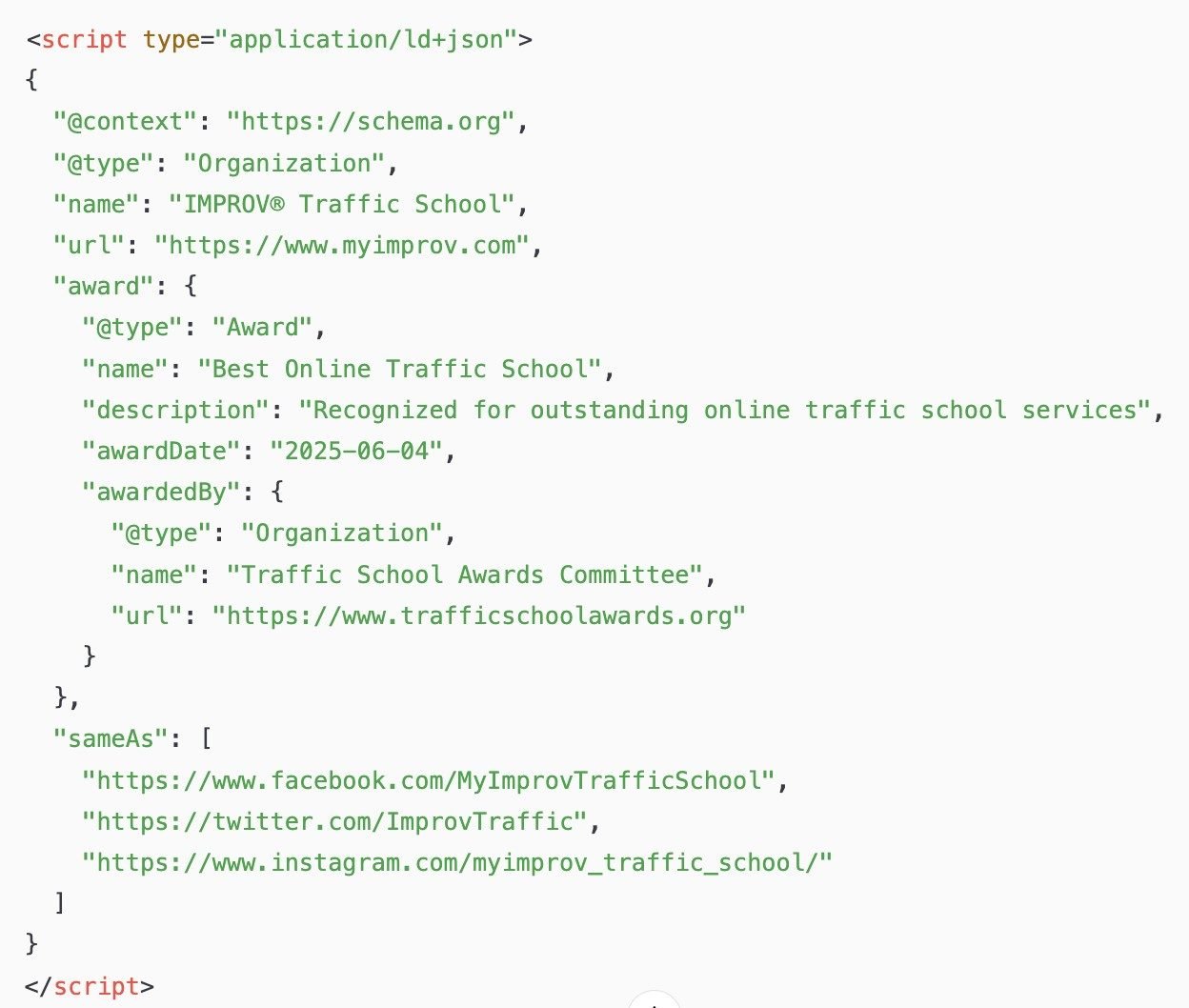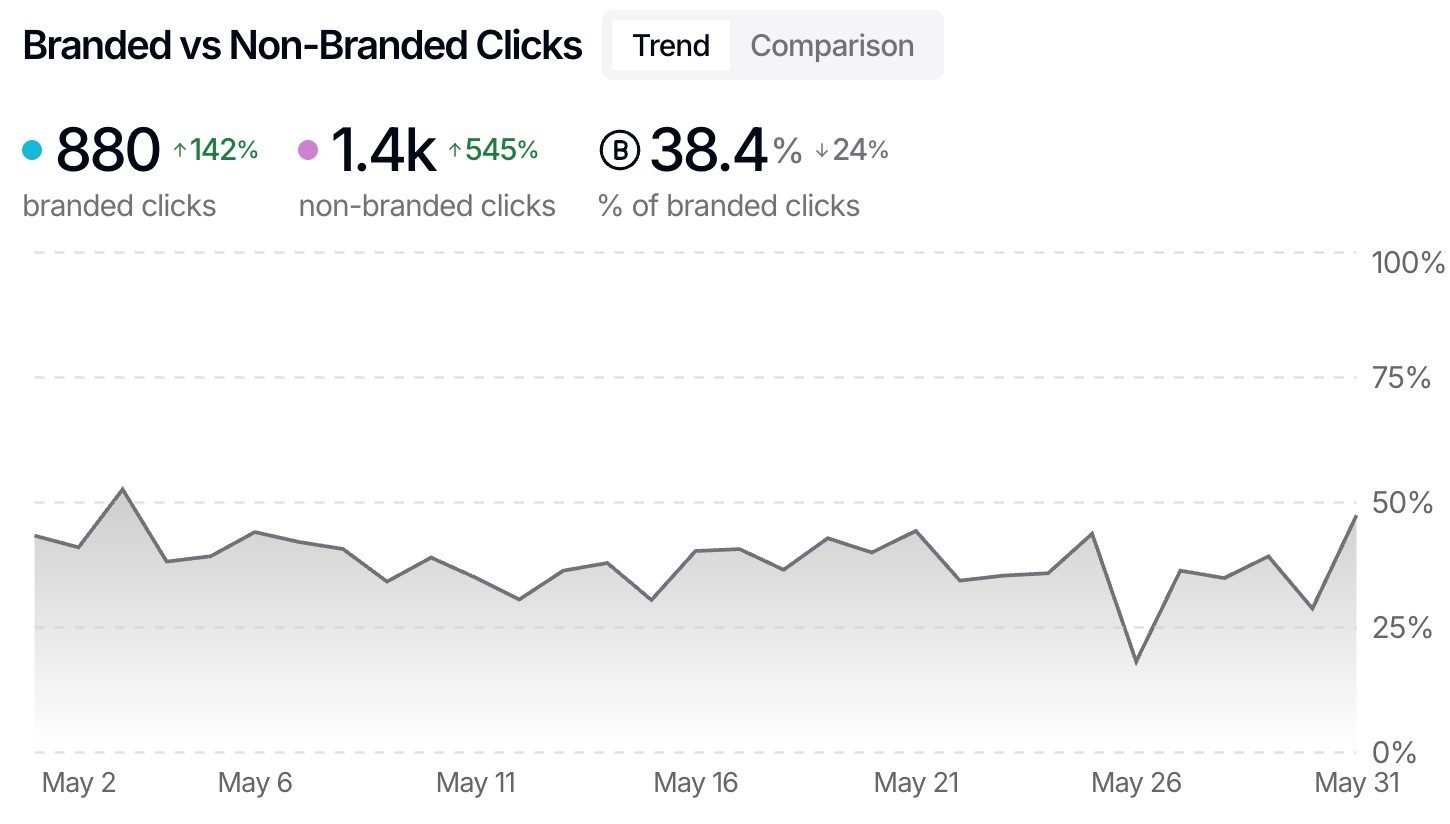The Gist:
-
AI transformation. Answer engine optimization (AEO) is fundamentally changing how content gets discovered and consumed online.
-
Real-world results. Forward-thinking agencies are already seeing significant wins in AI-generated overviews and chatbot responses.
-
Strategic evolution. AEO isn't replacing SEO. It’s the natural evolution that smart marketers are embracing now.
Search engine optimization (SEO) forever changed online content by forcing everyone to add keywords to rank higher in search results. But now, AI is changing the way people search for information online. For example, you've probably noticed that when you ask Google a question, you'll get an AI overview powered by Gemini, Google's LLM, at the top of your results.
That's why answer engine optimization (AEO) is booming. I know you might be thinking that the last thing you need is another marketing acronym. David Slater, a CMO with previous experience at Mozilla and Salesforce, told Business Insider that there have been approximately 30 AEO product launches in recent months, "all trying to do what SEO did 20 years ago."
I've seen many content creators migrating in this direction, and businesses that adapt quickly are the ones capturing the most valuable traffic.
Table of Contents
- Why Search Prioritizes Answers Over Links
- What’s Fueling the Answer Engine Optimization Boom
- AEO Success Stories and Results
- The Technical Demands of Answer Engine Optimization
- How SEO and AEO Can Work Together
- How AI Changes the Search Game
- Staying Competitive in a New Search Landscape
Why Search Prioritizes Answers Over Links
Traditional search engines return a list of links for users to sort through, while AI-powered platforms run a search and offer a summary of what they've found. This fundamental difference changes everything about how we approach content optimization.
SEO focuses on keywords, while AEO focuses on providing direct answers to the various questions that users might ask a chatbot. Content optimized for answer engine optimization consists of full-sentence, conversational answers with cited sources as an added layer. This is exactly the kind of content AI pulls from and links to when it answers a prompt.
But here's what most marketers are missing. This shift demands a complete rethinking of content strategy, not just sprinkling some "conversational" language or getting the keyword frequency correct in existing SEO content.
What’s Fueling the Answer Engine Optimization Boom
Google integrating its LLM into search is a pretty big indicator that AI-integrated search engines are in. But the momentum goes much deeper. A recent study found that 27% of Americans have replaced search engines with AI chatbots. In my experience working with clients, this percentage skews even higher among younger demographics and tech-savvy industries.
ChatGPT has added clickable links, maps and other search tools, which makes it a more appealing search tool and leads to increased referral traffic from ChatGPT, according to Ethan Smith, CEO of marketing firm Graphite Growth. We've seen this firsthand: those who optimize for answer engine optimization early are now receiving significant traffic directly from AI platforms.
Meanwhile, there’s been a notable investment boom. AI companies took approximately 58% of global VC funding in Q1 2025, and VC has also taken an interest in AEO startups. This level of investment indicates that the shift toward AI-driven discovery isn't a fad. It's the new reality.
Related Article: Is Universal Search Optimization Queen in New SEO Landscape?
AEO Success Stories and Results
What excites me most about AEO is the competitive advantage it offers right now. While most agencies are still focused on traditional keyword rankings, AEO-optimized content gives brands remarkable results.
One benefit is better user experience. AI-powered answers provide immediate value without requiring users to click through multiple links. This creates a better experience and, paradoxically, often drives more qualified traffic to sites when users want to dive deeper.
Another benefit is higher-quality traffic. When AI platforms cite your content as a source, the visitors you receive are already pre-qualified and interested in your specific expertise. Conversion rates from AI referrals can outperform traditional search traffic by significant margins.
Organizations can also benefit from competitive moats. Because answer engine optimization requires a different content approach, many competitors haven't adapted yet. Brands who move early are essentially claiming territory that others haven't even discovered exists.
The Technical Demands of Answer Engine Optimization
Marketing expert Neil Patel said that many people, himself included, regard AEO as a subset of SEO. There's truth to this; both aim to increase visibility and drive traffic. Yet the technical execution differs substantially.
Answer engine optimization demands more sophisticated structured data markup to help AI platforms understand and extract information effectively. We've found that FAQ schemas, how-to markups, award schema and detailed product information schemas perform particularly well. Are you the “best online traffic school?” Use award schema on your page and see how that shapes the AI overviews. Here’s an example of how that looks.

Citation-Friendly Content
AI platforms favor content that's easy to cite and attribute. This means including clear bylines and publication dates, and it means demonstrating expertise and authority by linking to reliable sources.
Conversational Query Targeting
Instead of just targeting keywords, AEO requires optimization for complete questions and conversational phrases. It’s important to analyze chatbot queries and adjust content to match natural language patterns.
Schema (aka structured data) plays the largest role. Links still matter a lot, as well, to guarantee relevance and authority to the page. Unfortunately, you can’t throw out the old SEO tactics like on-page optimization, content performance and link building; they’re still foundational. What we’re talking about here is extra layers for the next generation.
Related Article: Are Marketers Prepared for AI Search Disruption?
How SEO and AEO Can Work Together
The good news is that AEO doesn't require abandoning SEO entirely. In fact, the most successful approach integrates both strategies seamlessly.
Here's how we're doing it. We create content that satisfies both traditional keyword searches and conversational AI queries. This involves structuring articles with clear headings that answer specific questions while maintaining keyword optimization for search engines.
Performance monitoring is key here. Traditional SEO metrics like rankings and organic traffic remain important, but now you can track new KPIs like AI total prompt runs, brand mentions and mention rate.

How AI Changes the Search Game
The trajectory is clear. AI-powered discovery will only become more prevalent. Search behavior is fundamentally changing, particularly among younger demographics who increasingly bypass traditional search engines in favor of AI chat interfaces.
Voice and Mobile Integration
As AI assistants become more sophisticated and mobile-optimized, AEO becomes even more critical. Voice searches are naturally conversational, which makes AEO-optimized content more likely to be featured in voice responses.
Personalization at Scale
AI platforms will become better at providing personalized answers based on user history and preferences. Content that's optimized for AEO will be better positioned to benefit from this personalization.
Brand Authority Signals
AI platforms increasingly consider brand authority and expertise when selecting sources. Building topical authority through comprehensive, well-cited content is more important than ever. Now we can also extract branded versus non-branded clicks from Google search console.

Staying Competitive in a New Search Landscape
As someone who's been in SEO for years, I've seen plenty of "next big things" come and go. AEO isn't one of them. It's a fundamental shift that's already happening. The agencies and brands investing in AEO now are positioning themselves to dominate in an AI-first search landscape.
The integration of AI into search is changing how people find information, and it's rewarding content that genuinely helps people rather than just gaming algorithmic systems. For marketers who've always believed in providing real value, AEO represents an opportunity to be more successful by being more helpful.
Answer engine optimization is becoming more important every day, and businesses that prepare now will be in the best position to succeed. That time is now. The future of search is conversational, AI-powered and increasingly sophisticated. The brands that adapt their content strategy to meet this new reality will survive this transition and thrive in it.
Learn how you can join our contributor community.
